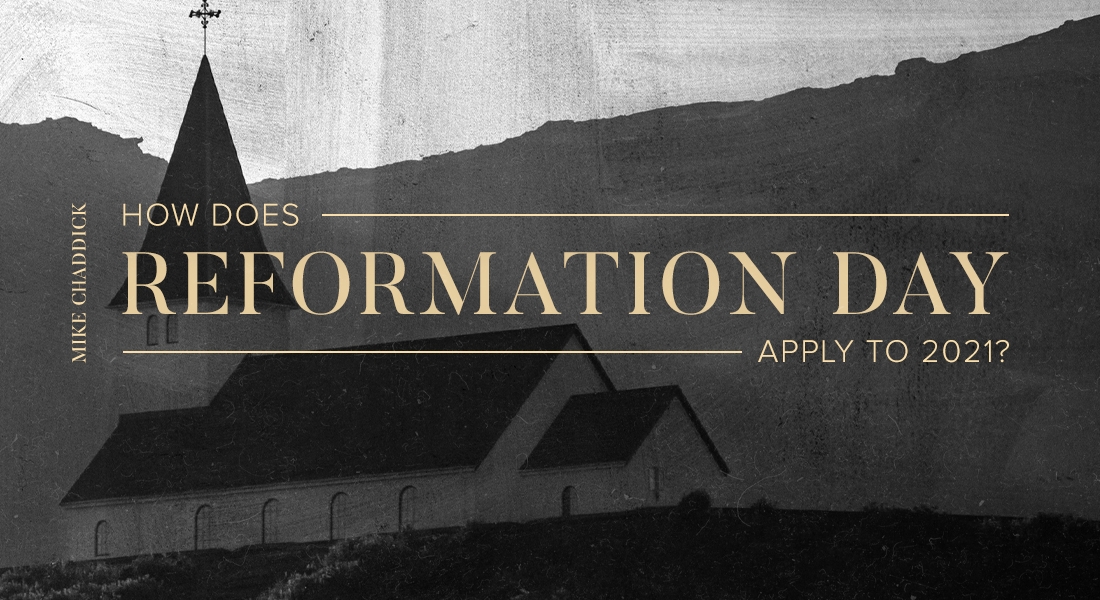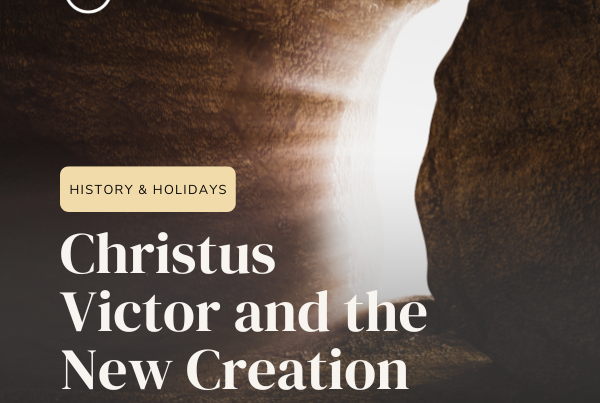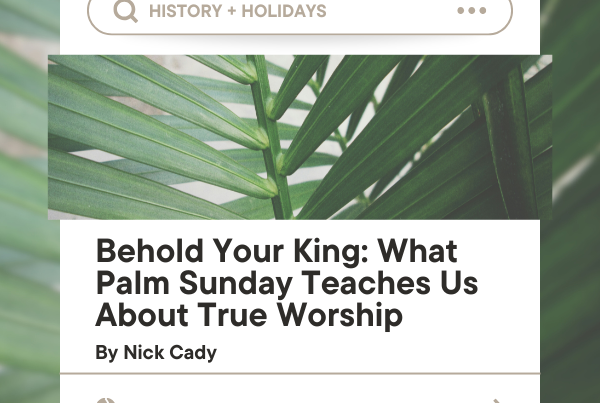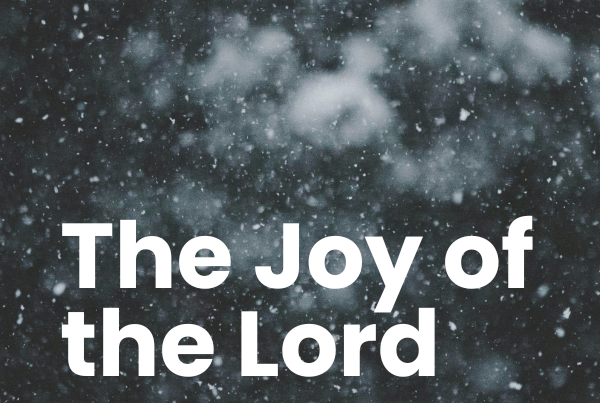
Believe it or not, October 31 is more than just an opportunity to dress up as a character from Squid Game, or to eat so much candy you never want to see a Snickers again (at least for a few more days anyway). It is the opportunity to reflect on a much more significant occasion… Reformation Day!
For those who might not be too familiar with church history, it was on October 31, 1517, that the great church reformer, Martin Luther, nailed his famous Ninety-Five Theses to the door of the Wittenberg church in Germany. This event came to be seen as a watershed moment for the emergence of what would later be called “Protestantism.”
At the time, Luther intended to ignite a much-needed debate within the church of Rome. He had hoped this would lead to the inward reform of the church in both doctrine and practice. And while Luther was certainly a flawed human being (especially by modern standards), it does not seem to be the case that he was a schismatic bent on dividing the church. And in fact, some prominent Catholics, such as Erasmus of Rotterdam, were in substantial agreement with a number of Luther’s critiques. Nevertheless, history tells us that things didn’t quite work out as he had planned. And, over time, a mass movement emerged, aided by the recent invention of the printing press.
One cannot underestimate the significance the Reformation had for reshaping the cultural landscape of Europe. European countries began breaking away from the Roman church and established their own variations of what came to be known later as “Protestant” churches. And of course, it was members of Protestant churches who first set sail for the New World. And so quite uniquely, the United States was not simply a nation influenced by Christianity in a generic sense, but was uniquely marked from its inception by a Protestant ethos.
So, in light of Reformation Day, I’d like to offer three things we can learn from the Reformation in retrospect:
1. WE MUST ALWAYS KEEP THE BIBLICAL GOSPEL AT THE CENTER OF THE CHURCH.
While I personally lament the rampant divisions so often seen in the church today (a sentiment grounded in Scripture, see 1 Corinthians 1:10-17; 3:1-4), there are in fact times when it is necessary to make hard decisions to separate ourselves from “professing” Christians who in fact deny the Gospel.
While Luther had numerous complaints against the Catholic church, at the heart of the matter was the concern about how, and in what way, sinners were made right with God. This was no secondary issue. And I believe what Luther was defending was the very doctrine of the Apostle Paul who taught, “For by grace you have been saved through faith, and that not of yourselves; it is the gift of God, not of works, lest anyone should boast” (Ephesians 2:8-9).
Though it is true that the newly developed Protestant churches each held various distinctives, they were united by, what one of my professors has called, “mere Protestant Christianity.”1 In other words, there was a historical, Protestant core that positively set forth the essence of the Gospel. These have also been referred to as the five solas (“Scripture alone,” “Faith alone,” “Grace alone,” “Christ alone,” “to the Glory of God alone”). And I believe it is urgent that we reclaim and celebrate these core beliefs lest our churches be washed out to sea by the seeker-friendly tide.
Moreover, if we do not keep the Gospel at the center of our churches, then something else will take its place. And when the Gospel is de-centered, Christians will more easily join the ranks of other social groups who also don’t have the Gospel as their center. And worse still, many more may sever their ties from genuine Christians with whom they disagree on non-Gospel issues.
But Protestantism should not be an excuse to divide over foolish things, but a clarion call to remain steadfast in the essential things.
2. WE SHOULD RENEW OUR COMMITMENT TO THE LOCAL CHURCH.
Reformation Day reminds us that we wouldn’t be where we are today, if it weren’t for those who long ago fully committed their lives for the spread of the Gospel through the church.
While COVID and the many issues related to it have certainly complicated and challenged local church ministry in numerous ways, yet God’s plan to form disciples in the image of Christ through the church has not changed. But what would it look like for us to renew our commitment to the local church at this particular moment?
For obvious reasons, physical attendance in church was highlighted over the past year and a half. But what about the vital areas of giving and serving? If we are truly committed to the flourishing of the local church, then we must not mislead people into believing that being a church member is reducible to “parking your carcass” (as my high school math teacher would say) in an auditorium once a week.
The word “fellowship” in Greek κοινωνίᾳ refers to “joint participation in a shared pursuit.” It means to be equally invested in something. Think of The Lord of the Rings for a moment. The Fellowship of the Ring didn’t mean Gandalf, Gimli, Legolas, and others sat around and clapped while Frodo went into Mordor by himself. Fellowship meant they gave and served, not merely attended.
Perhaps renewal today would result in a paradigm shift in which churchgoers ask, if I may paraphrase the late President John F. Kennedy, “Ask not what your church can do for you, ask what you can do for your church.”
3. WE SHOULD CULTIVATE A GREATER SENSE OF APPRECIATION FOR CHRISTIAN HISTORY.
As American Christians, it is easy to forget that at one time it was a foregone conclusion that if you lived in the West, and you were a Christian, you could only be a Roman Catholic. At one time, you could not own a Bible or read it in your own language. And there was a time when an individual could not worship according to their conscience, but rather, the forms of worship would be legally prescribed by a state-controlled church for all.
Forgetting the past is the surest way to repeat its errors. I pray our churches would all do a better job of cultivating awareness of, and practicing gratitude for, all those brothers and sisters who have gone before us and made our understanding of the Gospel possible.
So, wherever you are this October 31, take a moment and thank the Lord both that we have had the Gospel of grace preached to us, and for the faithful saints of old who have made our religious freedom possible. And let us also consider what we can do to show our love for Christ by solidifying our commitment to His church today.
Article Updated: Originally published on October 31, 2019
Notes:
1 Kevin J. Vanhoozer, Biblical Authority After Babel: Retrieving the Solas in the Spirit of Mere Protestant Christianity. Grand Rapids, MI: Brazos Press, 2016.









